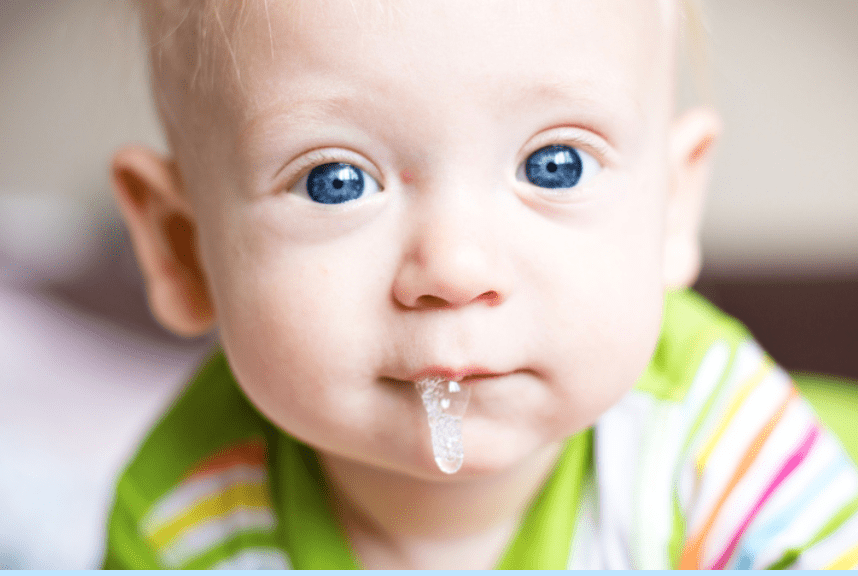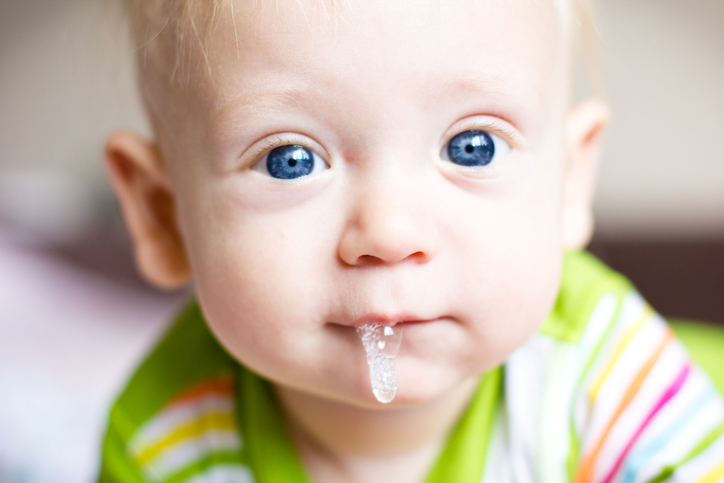Reasons My Baby Spits Up in Chicago
It’s a common hazard of parenting. You’re ready to leave the house, cleaned up and dressed up, when your baby suddenly spits a blob of drippy, smelly curdled milk all over your shoulder.
Yuck. Why does my baby spit up and how can I prevent this from happening? Alzein Pediatrics explains here.
Why Does My Baby Spit Up?
“Spit happens” because babies are born with an immature lower esophageal sphincter (LES). This muscle is located where your baby’s esophagus, the tube that carries food from the throat to the stomach, meets the stomach. In new babies, the LES is not yet strong enough to close tightly to seal the stomach from the esophagus, so stomach contents flow back into the esophagus, into the throat and out of mouth. This is known as infant reflux or infant acid reflux.
About 50% of healthy babies experience infant reflux and will spit up after meals. While it seems like spitting up can last forever, and some LES muscles take nearly a year to fully mature, many infants will stop spitting up by the time they are about 7 months old and can sit upright without help.
When that spit up dribbles down your baby’s front, you may worry that your child is losing most of what he or she just ate. In reality, normal spit up is just a teaspoon or two. Rest assured your baby is typically still getting all the nutrition she needs.
It’s important to distinguish between spit up and vomiting. When your child spits up, she hardly notices it, and will still play or laugh without missing a beat. The spit up just dribbles out, often prompted by a burp. Vomit, on the other hand, spews out with force, shooting out of his mouth and causing your child to react with distress as if in pain.
A weak LES is also what causes gastrointestinal reflux disease in adults, resulting in heartburn. This connection has caused an increase in the prescribing of acid-suppressing medicines for infants. Before any such drastic measures are taken, we will give your baby a full exam, including carefully checking weight gain progress. Very few babies will require a prescription for spitting up.
How Can I Prevent My Baby from Spitting Up?
You can’t eliminate spit up entirely until your child’s LES matures, but you can do a few things to help lessen the occurrence.
- Hold your baby in an upright position when feeding him, especially from a bottle, and keep him upright for at least 30 minutes after.
- Make sure the hole in the bottle’s nipple is not too large, which causes gulping, or too small, which causes the swallowing of air.
- Ask Alzein Pediatrics about a formula change if bottle feeding.
- If you’re breast-feeding, ask Alzein Pediatrics about how changes in your diet may relieve your child’s spitting up.
- Burp frequently and thoroughly, about every 3-5 minutes during feeding.
- Don’t bounce or jostle your baby for about 30 minutes after feeding.
- Don’t start cereal or solids before your Alzein Pediatric medical professional gives the okay.
When Should I Be Concerned About Baby Spit Up in Chicago?
While most spit up is perfectly normal, there are times to be concerned. It’s time to call Alzein Pediatrics when:
- Your baby isn’t gaining weight.
- Your baby vomits rather than spits up.
- The spit up is green, yellow, or shows signs of blood, like red or brown.
- Your baby is refusing the bottle or breast.
- You see blood in your baby’s diaper.
- Your baby has a fever, difficulty breathing, is listless or shows other signs of illness.
- Your baby starts spitting up after 6 months of age or older.
If you have questions about spit up, or any other health concerns, call us at 708-424-7600 or email us. We may help you tweak diet or feeding habits, or make an appointment to see your baby and analyze weight gain and growth. We are always here to help!



